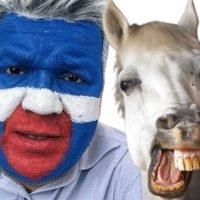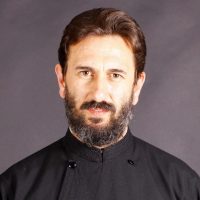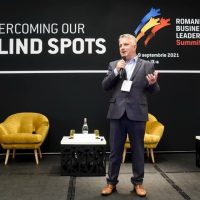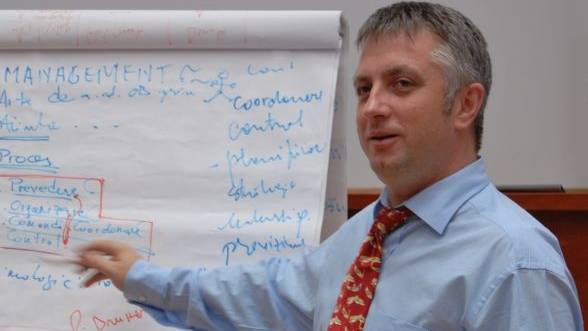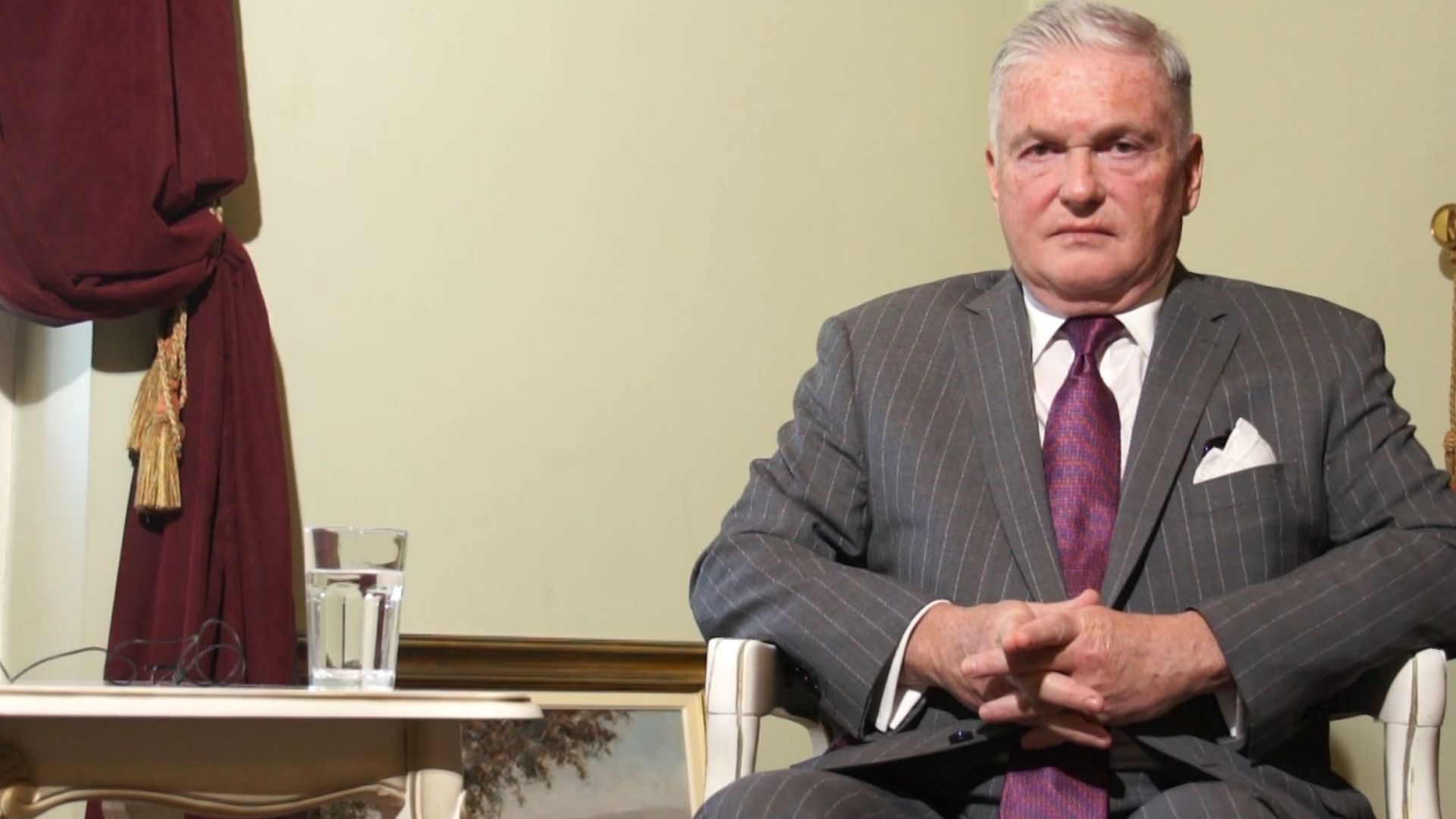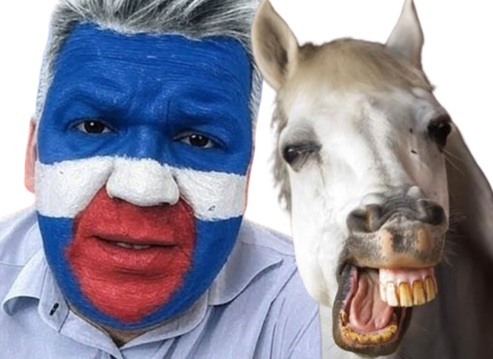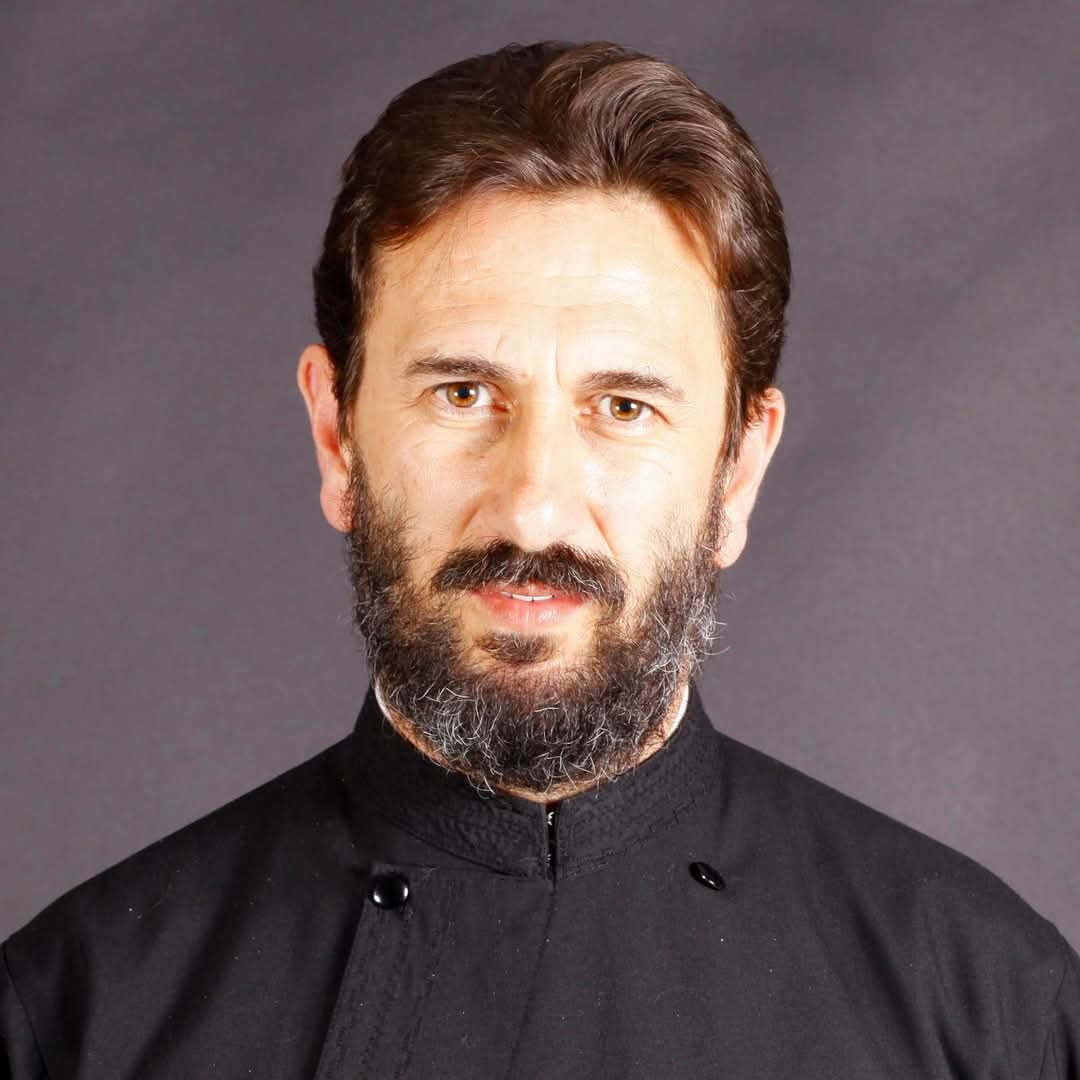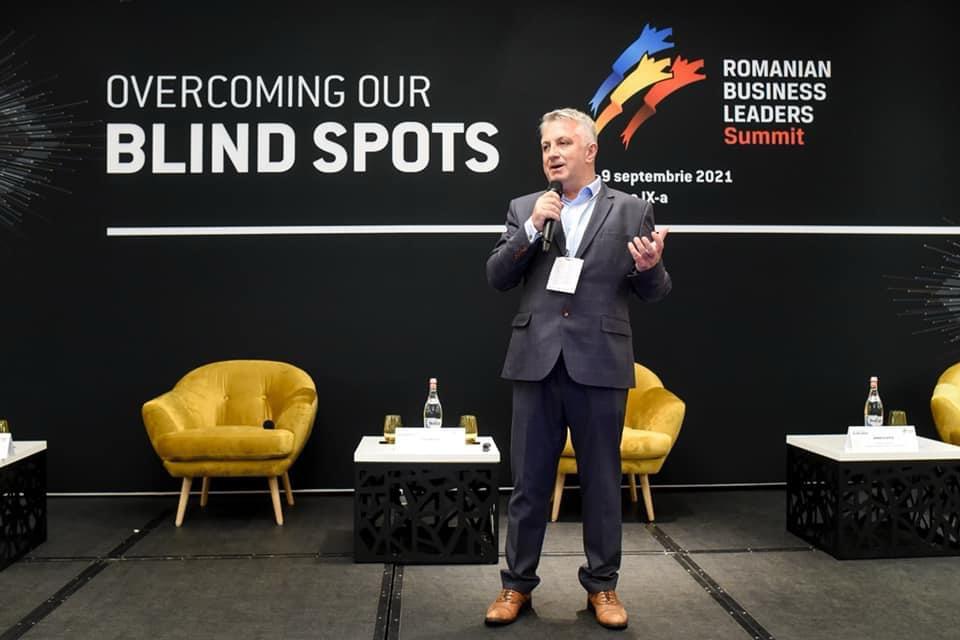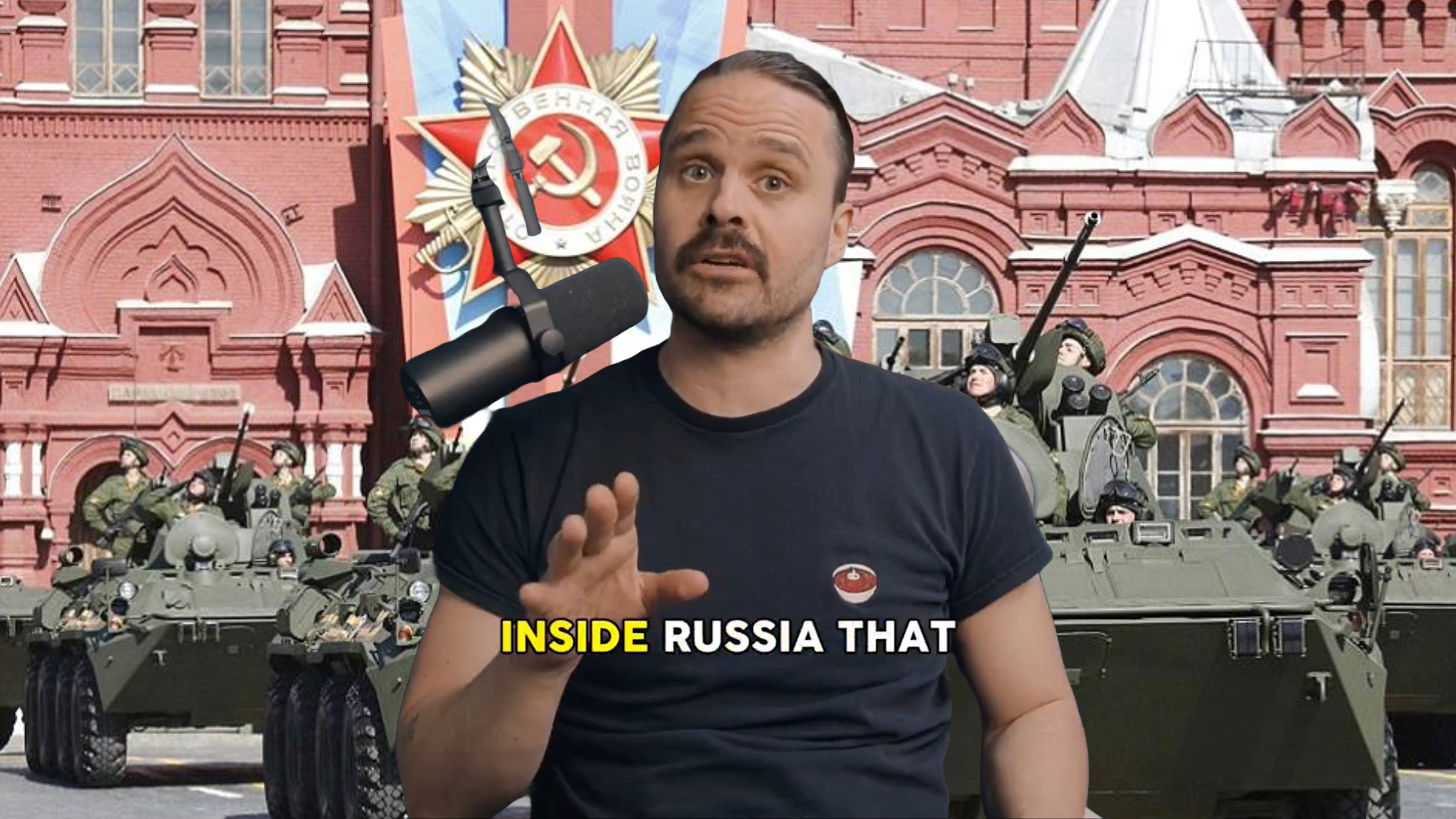Primul contact al tînărului Ed Husain cu islamismul e facilitat de profesoara de educaţie religioasă, o englezoaică bine crescută, adică super tolerantă şi multiculturală. De aici, drumul a dus firesc la Youth Muslim Organization, Jamat-e-Islami şi moscheea din estul Londrei.

Teenage Rebellion
Keen to know more about my faith, I approached my school’s religious education department and asked if I could study Islam and Christianity out of school hours. In those days very few pupils expressed serious interest in study of any sort; the RE teachers were nonplussed. Mrs Rainey, head of the department, kindly volunteered to give twice-weekly extra-curricular tuition to me and another student at her home in Wapping.
I enjoyed studying withMrs Rainey more than anything else at school. She made it clear to us that she was of the Church of England, but that did not stop us from trying to convert her.
The other student who joined me was Abdullah Falik, whom I slowly got to know well. In line with religious notions of respect I used to call him Brother Falik, while he called me Brother Mohamed.
Brother Falik was a rather serious, observant young Muslim.
Every lunchtime he helped rearrange the furniture in a classroom to ensure that other Muslim students could perform their midday prayers. After a while I started to help him in what seemed like a noble task.
I now wanted everything to do with Islam. There was one problem: Grandpa and my parents had taught me by setting an example, by living faith. Mrs Rainey taught us with books.
The first book I read about Islam in English was Islam: Beliefs and Teachings by Gulam Sarwar. My parents and Grandpa had taught me Islam without books, but via an oral tradition, partly because of a lack of books in English on Islam for children, but also because they believed Islam was an internal condition, to be instilled in human hearts by teachers, not lifted from dry pages. Bm I had always been an avid reader; and now warmed to the idea of reading about Islam in English. Sarwar’s book filled a gap.
At school, Sarvvar’s was the main textbook for those studying RE. I set out not only to read it but to ensure that I understood it thoroughly. Whether I succeeded or not, one part of the book has stayed with me.
I had been taught that Islam was a path that would draw me closer to God. During my reports of the political situation in the Middle East, Grandpa had never spoken about an ‘Islamic state’. In all his discussions about his most beloved Prophet, Grandpa had never portrayed him merely as a founder of an Islamic state, a political leader. In all the books Grandpa read, the chapters he discussed with his students, he never raised a subject known as ‘Islamic politics’. Yet, in Sarwar’s book, there was a chapter on the ‘Political System of Islam’. From a young age I had been exposed to politics: my father’s addiction to the news, Attlee’s statue outside my local library, family visits to Gandhi’s Kingsley Hall, discussions about Churchill, and my father’s acquaintance with our local MP, Peter Shore, all meant chat I had strong political roots. At no time, however, did I hear complaints from the thousands of Muslims I met while travelling with Grandpa about the need for (or the absence of) an ‘Islamic state’ or a ‘political system of Islam’.
The first lines of Sarwar’s chapter read:
Religion and politics are one and the same in Islam. They are intertwined. We already know that Islam is a complete system of life … Just as Islam teaches us how to pray, fast, pay charity and perform the Haj, it also teaches us how to run a state, form a government, elect councillors and members of parliament, make treaties and conduct business and commerce.
In concluding his introductory chapter Sarwar wrote that there was no Islamic state in the world today in which Islam was a system of government. He commended the efforts of several organizations that were dedicated to the creation of ‘truly Isamic states’ and mentioned several groups by name, including The Muslim Brotherhood in the Middle East and Jamat-e-Islami in the Indian subcontinent, which were working for the ‘establishment of Allah’s law in Allah’s land’.
Today, in British schools, Sarwar’s book continues to be used in RE classrooms. In mosques and Muslim homes across Britain it is promoted as an introductory text for young Muslims. What I did not know at school was that Sarwar was a business management lecturer, not a scholar of religion. And he was an activist in the organizations that he mentioned. Sarwar’s book was not the dispassionate educational treatise it purported to be.
He was also the brains behind the separation of Muslim children from school assemblies into what we called ‘Muslim assembly’, managed by the Muslim Educational Trust (MET). What seemed like an innocuous body was, in fact, an organization with an agenda. In my school, a Jamat-e-Islami activist named Abdul Rabb represented the MET and awarded us trophies and medals for our performance in MET exams. Ostensibly it all seemed harmless, but the personnel all belonged to Jamat-e-Islami front organizations in Britain. Their key message was that Islam was not merely a religion but also an ideology that sought political power and was beginning to make headway. The spiritual Islam of my parents’ generation was slowly giving way to something new.
I, at sixteen, was already wondering why my parents had never spoken about this most important aspect of our religion, the Islamic state. In all my discussion with traditional Muslims during the recent Gulf war, why had no one made it clear that religion and politics are ‘one and the same in Islam’? And why had none of us sought to ‘establish Allah’s law in Allah’s land’? And if this was what movements such as the Jamat-e-Islami and the Muslim Brotherhood were aiming to do, well, what was wrong with that?
Sanvar wrote about ‘Islamic movements’ in the Muslim world as perfectly normal developments. But I recalled Grandpa and his students, many of them clerics trained in madrassas in India and Bangladesh, talking about the Jamat-e-Islami in disparaging terms. I had heard many of these conversations taking place between imams in various towns, and they complained about the increasing influence of Jamat-e-Islami activists in their mosques. They had sought clarity from Grandpa about the nature of the Jamat-e-Islami, and Grandpa had spoken repeatedly about a man named Abul Ala Mawdudi.
Born in 1903, Mawdudi was a Pakistani journalist who translated the Koran according to his own whims, without reference to or within the paradigm of classical Muslim scholarship. He developed and promoted a new brand of Islam, highly politicized and deeply anti-Western. Mawdudi, who died in 1979 during a speaking tour of America, was the first Muslim to reject Islam as a religion and rebrand it as an ‘ideology’. This ‘ideology’, political Islam, was actively propagated by the organization he had started in 1941 in British India: the Jamat-e-Islami. Seeing the name on the pages of my school textbook began to make the Jamat-e-Islami seem respectable. Perhaps Grandpa was wrong, I thought.
Falik used to wear a black and white chequered scarf. While preparing my reports for Grandpa during the 1990-91 Gulf war I remembered seeing Yasser Arafat wearing a similar scarf: Bedouin headgear conveniently appropriated as a symbol of Palestinian resistance against Israeli occupation. When I bought my own scarf, my father was puzzled.
‘What is that?’ he asked.
‘Brother Falik wears one,’ I answered. ‘It’s to support the Palestinians. ‘
‘How does wearing a scarf support the Palestinians?’ he asked. bewildered. ‘And who is Brother Falik?’
‘He is my friend from school, Dad. He prays regularly, recently did the Haj, and he also attends classes with Mrs Rainey.’ I withheld any information about YMO and the East London mosque, knowing instinctively that those names would infuriarc my father. The YMO and the East London mosque both venerated Mawdudi and, as a result of Grandpa’s teachings, my father loathed anything to do with him. Had my father caught me snorting cocaine he would have found it in him to forgive me, counsel me. But I knew he would not be able to tolerate any association with those he considered enemies of God: Mawdudi’s followers, the activists at the East London mosque. Since childhood my father had always taken us to pray at Brick Lane. In many ways, Brick Lane mosque was the rival to the more glamorous, publicity-craving East London, which had received donations from Saudi Arabia, was custom built with minarets and a dome, and employed Saudi-trained imans. Most of its committee members were affiliated to the Jamat-e-Islami.
Throughout the late 1980s, the East London mosque had been the site of conflict between rival factions of the Jamat-e-Islami in Britain (calling themselves Dawatul Islam and Islarmc Forum Europe to conceal their extremist connections). Both organizations knew that whoever controlled this strategically placed institution, at the heart of the densest population of Muslims in Britain, would command significant power among Britain’s Muslim community. For years the rival factions had been engaged in a bitter and sometimes violent power struggle.
Much of the conflict was to do with provincialism, personality clashes, and financial disputes. Money from Saudi Arabia helped build the East London mosque and its leaders were channelling funds into their organizations and earning salaries as ‘ministers of religion’ by associating themselves with Saudi Arabia’s missionary arm, the Muslim World League. Some of these Saudi stooges came from Sylhet in the east of Bangladesh, others from Noakhali in the south, and the difference in culture often led to personality clashes between key individuals. There were accusations of embezzlement which in 1990 resulted in High Court injunctions against the then imam of the mosque, Abu Syed, and other key Jamat-e-Islami figures. Several organizers at the mosque were imprisoned following violent clashes. The humiliating spectacle of the Metropolitan Police breaking up fights between activists led Jamat-e-Islami from Pakistan and Bangladesh to send leading members from their central executive committee in an attempt to end this shameful exhibition of Islamist infighting. But to no avail. The expelled imam Abu Syed held Friday prayer congregations under police guard outside the mosque for several weeks while his opposition, led by the newly formed Islamic Forum Europe, prayed inside the mosque. (In later years Abu Hamza would follow this precedent, praying outside rather than inside after clashing with the authorities at Finsbury Park mosque.)
All the while, over at Brick Lane, worshippers shook their heads in disgust at Jamat-e-Islami politics being fought out on the streets of Britain. Grandpa’s warnings, it seemed, were all too necessary.
My friend had just told me more than I knew. I had no idea that police had raided the mosque with sniffer dogs. (I was later told that weapons had been kept there as a precaution against attacks from the rival faction but that, after a tip-off, they were moved to the homes of unsuspecting families in nearby Old Montague Street.)
‘But my father’s been praying at Brick Lane since well before the violence. He says the mosque is a centre for Jamat-e-1slami, a political organization, not for worship.’
Falik looked at me, bemused.
‘You know the Jamat-e-Islami?’ he asked, as we walked along.
‘Yes. According to my father they’re a sinister political organization, use Islam as a political tool and demean the Prophet’s original teachings.’
Falik was rather shocked by such blunt accusations. His older brother was a member of ]amat-e-Islami and, as far as he could make out, they were upright Muslims trying to ‘bring Islam’ to Pakistan, Bangladesh, India, and Sri Lanka. Perhaps I should meet some people from the organization and decide for myself, he suggested.
For me, that was an acceptable answer. Now I could discover at first hand whether ]amat-e-Islami did indeed loathe Muslim saints, denigrate the Prophet, and want to politicize Islam.
That evening, inside enemy territory, I was given VIP treatment. My schoohnate, it transpired, was extremely well connected. He knew all the movers and shakers behind the office walls of the East London mosque. Most worshippers removed their shoes and put them on rails adjacent to the main prayer hall; I was privileged, along with Brother Falik, to put my shoes behind closed doors in an area reserved for activists of the YMO and the Islamic Forum Europe.
Falik rang the mosque’s security buzzer and we were admitted without interrogation. Inside the mosque the atmosphere was incomparably different from Brick Lane. There I was a young boy, in my father’s shadow; here the place was buzzing with young, trim-bearded, English-speaking activists. There were no sombre and elderly worshipful Muslims in these offices – pious Muslims belonged only in the prayer hall – rather a sense of organization and discipline; everybody seemed to know their place.
Falik introduced me to no fewer than fifteen people that night, some set to emerge as national ‘moderate’ Muslim leaders in the years that followed. Ahnost without exception they took an interest in me, my studies, my family, and my future plans. I could relate to them. I respected them for their seniority, dynamism and commitment to Islam. They seemed like worthy role models: English-speaking, educated, and rooted in faith.
I felt that I could easily become part of this highly organized robust network of brothers who led a mosque-centred life. At Brick Lane mosque the elders only stroked my head to acknowledge me. It was my father they engaged with; I was merely his little boy. The people here were interested in me. To an isolated schoolboy, that mattered.
The East London mosque was more than a place of worship. It housed the infrastructures of activist organizations, hosted meetings and weddings, and offered other facilities for the local community. The prayer hall was for worshippers, the offices were for the many voluntary managers of the mosque who were fromJamat-e-Islami. They referred to themselves as the ‘mosque committee’, elected not by the worshippers but by a group of selected individuals known as ‘members’. I later learnt that leading managers of the mosque such as Dr Abdul Bari and Chowdhury Mueen Uddin did not live in Tower Hamlets but in Haringey. Their control of the mosque came from their allegiance to Jamat-e-Islami, not as local Muslims.
Falik never openly tried to recruit me to what was increasingly referred to as the ‘Islamic movement’, an array of organizations ideologically linked to Mawdudi. However, as I spent more time in the company of activists from the movement, the questions in my mind started to trouble me deeply. Ours was an open family, we ate together, spoke about almost everything without reservation, and yet I was betraying my parents, beginning to lead a double life. I wanted to tell my father about my new companions at the East London mosque, the YMO, but I could not. I had made mends there whom I did not want to lose. I knew my father would challenge my new beliefs, so I wrote the leaders of the YMO a letter. I sought clarity on what they thought about the arch enemy of traditional Muslims, their founder, Abul Ala Mawdudi. I asked what they thought about famed saints across the Muslim world, including Grandpa. I asked why traditional Muslims accused Jamat-e-Islami and its offshoots, such as the YMO, of denigrating the Prophet Mohammed.
I sealed my four-page letter in an envelope and gave it to Falik to pass to the Central Executive Committee, hopeful of receiving a written response which I could show to my father, even Grandpa if need be, proving that there clearly had been some misunderstanding.
A few days later Falik informed me that Siraj Salekin would like to see me. The following Wednesday, with Falik in tow, I met Siraj at Fieldgate Street in a small, threadbare-carpeted room in which stood a desk and telephone, several chairs, and a corner bookshelf stacked with English books. He went through my letter, thanking me for asking such detailed questions and wondering how I knew about Mawdudi, Jamat-e-Islami, and, most of all, who had taught me. I answered honestly, telling him about my time with Grandpa and the spiritual Islam practised by my parents.
He told me how he had family members who admired Grandpa, and how he had no problems with the spiritual form of Islam taught at Brick Lane, but he preferred an ‘Islam that was a complete code of life’. To his credit, Siraj admitted that he did not know much about mystical orders of the Muslim world.
He also said he knew Jamat-e-Islami leaders at first hand and they were not the corrupt, politicized deviants most Muslims labelled them but were decent, morally upright workers of the Islamist movement. On the subject of denigrating the Prophet, he seemed genuinely shocked that the YMO could be accused of such a thing. I said that Mawdudi had compiled unauthorized, amateur exegetical works; that he had made serious mistakes. Siraj pointed to four volumes of Mawdudi’s exegesis and said, ‘Please show us where the mistakes are and we will change them. Also, we don’t think Mawdudi was perfect, he made mistakes. You can disagree with Mawdudi, and yet join the Islamic movement. Our aim is to change the Muslims, to make them live Islam as a complete code of life, not as a mere religion. Islam is more than a religion. We want to see Islamic government, Islam taken out of mosques and homes, and into all areas of life.’
I liked Brother Siraj’s open-door policy, his willingness to be critical of Mawdudi. He invited me to attend their weekly meetings on Saturday evenings, known as taleemi jalsa, and ask any questions I wanted. The YMO had given me friends, a place in the world. Now, as they had answered my questions, their place in my heart was confirmed. At the time, as a result of the months-long violence in one of Britain’s largest mosques, the YMO had gained a reputation in Tower Hamlets and beyond as being tougher than the toughest gangsters. The Brick Lane Mafia, Cannon Street Posse, and Bethnal Green Massive shrank to the stature of playground bullies when compared with the rising star of the YMO. YMO had several members in prison. They won fights, deployed kung-fu experts in the mosque hall, defied the police, and were ‘bad boys’, too. They just liked to call themselves ‘practising Muslims’. YMO football tournaments were renowned for mid-game interruptions to perform prayers. In their ranks they had martial-arts experts such as the locally well-known Abjol (now a Respect Party councillor in Tower Hamlets). They were as bad and cool as the other street gangs, just without the drugs, drinking, and womanizing.
At school Falik and I were now openly known as brothers trom the YMO. After five years, I had found both a friend and a cause to which I belonged.
My GCSE exams faded further into insignificance as I became involved in organizing a national youth camp at Gilwell Park in Essex. We produced T-shirts, put up posters in Muslim areas of London, persuaded parents to encourage their children to attend our events. I took particular pride in ensuring that there were several posters on the doors of Brick Lane mosque. Where others respected the rivalry between East London and Brick Lane, I was now keen to bring my father’s mosque, or at least its younger worshippers, over to the Islamist movement. And I began to lie to my parents a little more.
I told my father that I wanted to revise for my GCSEs with Falik and that there was a good revision programme at East London mosque on Saturday nights. My parents were hesitant about the benefits of revising for school exams at a political centre, but somehow, reluctantly, my father agreed that I could go.
I still remember my very first taleemi jalsa. It was not in the main hall of the mosque but in a large rectangular room with green carpet. About fifty young men sat on the floor in a rough circle, with two men sitting at the head. The main speaker was a young undergraduate, a rarity in Tower Hamlets at a time when few young people of Bangladeshi origin went to university.
‘Islam is the source of all knowledge,’ he told us. ‘Before Islam the world was in darkness. Today the West is proud of democracy, but where did it come from? The first democracy in the world was in Medina, when the Muslims elected caliphs in free elections. So much of what the West has today comes from Islam, especially democracy … ‘
That insight into history stayed with me. The unquestioning assertion of Islam’s, or more precisely Islamism’s, political superiority over the West was a constant theme in YMO events. In other taleemi jalsa gatherings similar themes of Islam’s ascendancy over communism and capitalism were also a subject of study. Often speakers would quote extensively from Mawdudi’s The Islamic Movement, stressing the importance for Muslims of striving together to create a true Islamic society in the world. In explaining the ‘main objective of Islam’, quoting Mawdudi, one speaker read, in English:
These aims cannot be realized so long as power and leadership in society are in the hands of disbelieving rulers and so long as the followers of Islam confine themselves to worship rites, which all too often depend on the arbitrary patronage and support of those very rulers. Only when power in society is in the hands of the Believers and the righteous, can the objectives ofIslam be realized. It is therefore the primary duty of all those who aspire to please God to launch an organized struggle, sparing neither life nor property for this purpose. The importance of securing power for the righteous is so fundamental that, neglecting this struggle, one has no means left to please God.
His scathing attack on ‘disbelieving rulers’ and promoting his own followers as ‘Believers’ and criticizing those who ‘confined’ religion to worship made me think about my own approach to Islam. Most compelling was Mawdudi’s conviction that the struggle for removing ‘disbelieving rulers’ and creating a society ruled by ‘the righteous’ was the only ‘means left to please God’.
As I heard more references to Mawdudi, I started to read his books for myself. The loathing for Mawdudi instilled within me by Grandpa gradually evaporated.
I bought a copy of what was mandatory reading for all Islamist movement activists, Let Us Be Muslims, from a Leicester-based Islamist think tank, the Islamic Foundation. The Islamic Foundation was staffed by leading intellectuals of the Islamist movement, men trained personally by Mawdudi, such as the late Khurram Murad, the Pakistani economics professor Khurshid Ahmed, and others such as the director Manzair Ahsan. The Islamic Foundation was committed to propagating the ideas of the Islamist movement, and translated and published the writings of Mawdudi. Let Us Be Muslims was prominent among them. I started to read the book with keen interest. Sarwar’s Islam: Beliefs and Teachings had already got me thinking about the need for an Islamic state, and a political system of Islam. It was the summer of 1991. My evenings were filled with YMO events and meetings, my time at school in organizing and leading prayer meetings, encouraging others to join the YMO. I was sixteen years old and I had no white friends. My world was entirely Asian, fully Muslim. This was my Britain. Against this backdrop, the writings of Sarwar’s guru, Mawdudi, took me to a radically new level.






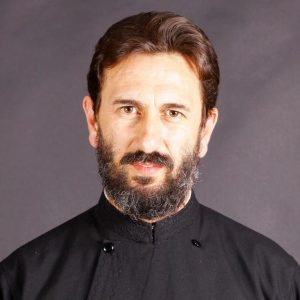
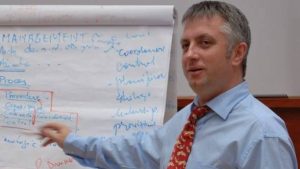

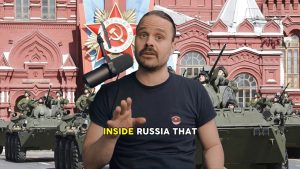
![marius-bostan-foto[1] marius-bostan-foto[1]](https://inliniedreapta.net/wp-content/uploads/elementor/thumbs/marius-bostan-foto1-qt9ywoo2b2lgv37b76h9qr5yo6db5vwzoxbuvd4e6o.jpg)

